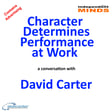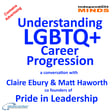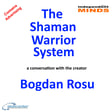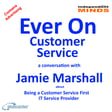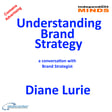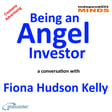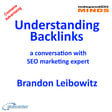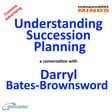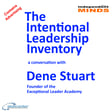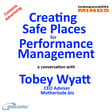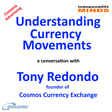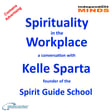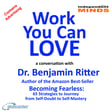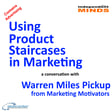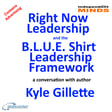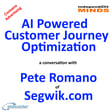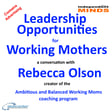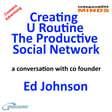
Sustainable Excellence – a conversation with author Terry Tucker
Terry Tucker has had a varied career. From college scholarship basketball player, to marketing executive, to police hostage negotiator and school safety advisor, he has certainly been there and done it.
Most recently he has been battling a rare cancer. That is the sort of life event that forces you into a reflective learning mode. Unlike most people Terry has distilled his reflective learning into ten principles for leading an uncommon and extraordinary life and created a book
.Sustainable Excellence: 10 Principles to Leading Your Uncommon and Extraordinary Life,
In this episode of the Abeceder podcast The Independent Minds, Terry describes to host Michael Millward the ten principles. They discuss the how these ten principles to help people to create their best life.
As Michael and Terry share their experiences of life and some of their favourite quotations they are learning from each other just as much as the listener will be learning from them.
You will undoubtedly leave this programme feeling confident in how to deal with internal and external doubters and inspired to work on your own life.
More information about Terry and Michael is available from Abeceder.co.uk
The Independent Minds is made on Zencastr, because as the all-in-one podcasting platform, Zencastr really does make creating content so easy.
If you would like to try podcasting using Zencastr visit zencastr.com/pricing and use our offer code ABECEDER.
Travel
Joe is based in Denver Colorado, USA.
With discounted membership of the Ultimate Travel Club, you can travel anywhere in the world at trade prices on flights, hotels, trains, and so many more travel related purchases.
Fit For Work Look after your health and you will be fit for work.
Terry is candid about the health challenges he and his family have faced.
It is important to know the risks early. That is why we recommend The Annual Health Test from York Test; a 39-health marker Annual Health Test conducted by an experienced phlebotomist Hospital standard tests are carried out in a UKAS-accredited and CQC-compliant laboratory.
A secure Personal Wellness Hub provides easy-to-understand results and lifestyle guidance
Visit York Test and use this discount code MIND25.
Three the network Visit Three for information about business and personal telecom solutions from Three, and the special offers available when you quote my referral code WPFNUQHU.
Being a Guest
We recommend that potential guests take one of the podcasting guest training programmes available from Work Place Learning Centre.
We use Matchmaker.fm to connect with potential guests If you are a podcaster looking for interesting guests or if you have something interesting to say Matchmaker.fm is where great hosts and great guests are matched and great podcasts are hatched. Use our offer code MILW10 for a discount on membership.
We appreciate every like, download, and subscriber.
Thank you for listening.
